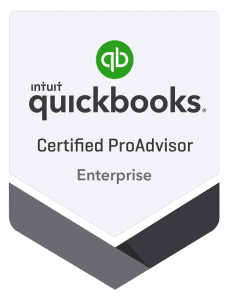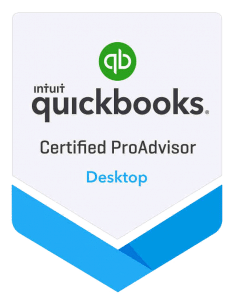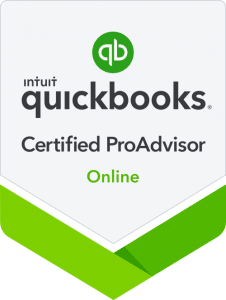Running a small business comes with lots of moving parts, from hiring and sales to managing day-to-day operations. But one of the most important pieces that often gets overlooked is financial management. Making smart choices about your money isn’t just something to think about during tax season. It’s one of the deciding factors in whether your business becomes sustainable or struggles to stay afloat.
By keeping a close eye on spending, forecasting future costs, and staying ahead of common problems, you can avoid costly mistakes and build something that lasts. Prioritizing financial management isn’t just about staying organized. It’s about putting your business in a stronger position to grow and succeed over time.
Understanding Financial Management
Financial management isn’t just bookkeeping. It’s the full process of planning, tracking, and controlling how your business earns and spends money. That includes creating budgets, watching your income and expenses, preparing for tax responsibilities, and making sure there’s enough cash on hand to pay staff and suppliers.
The way you manage your money plays a role in nearly every part of your business. Without a clear financial plan, you risk having messy records, missing payment deadlines, or failing to prepare for slower seasons. That kind of chaos not only causes stress, it can hold your business back from making real progress.
With strong financial management, you’re more confident in your decisions. It helps you stay realistic about your current situation while still planning for growth. It’s like using a GPS instead of hoping you’re heading in the right direction. When you know where your money is going, you’re steering your business with control, not guesswork.
Benefits of Strong Financial Management
When your financial system is steady, the rest of your business stands on more solid ground. Here are a few clear advantages:
– Better cash flow management
Knowing when money is coming in and where it’s going helps you avoid problems like late bills, missed payroll, or unexpected shortages. Staying on top of your cash flow prevents scramble mode and keeps things running smoothly.
– Improved decision-making
With organized records and real-time data, it’s easier to feel confident about changes you’re considering, whether that’s hiring new staff, buying more inventory, or launching new services.
– Increased growth opportunities
When you have clear insight into your numbers, it becomes easier to spot the right time to grow. Whether you’re applying for a loan or considering expansion, you’ll have the tools and documentation needed to move forward with less risk.
Strong financial management doesn’t have to involve complex systems or fancy tools. With a smart approach and consistent practices, it becomes the framework you rely on to build something reliable.
Practical Financial Management Strategies
Managing your business finances well depends on steady habits and clear goals. Here are a few strategies that can make a big difference:
1. Start with a budget.
Think of a budget as your money plan. At the beginning of each month, review your expected income and list out your expenses. This helps you stay on track and gives you clues immediately when you’re overspending.
2. Review your finances regularly.
Once a month, sit down and check how your actual spending compares to the budget. Reflecting on what’s working and where you may have gone off helps prevent small hiccups from turning into major issues later.
3. Work with professionals
Financial experts can offer a level of insight that you may not have on your own. From tax planning to cash flow strategy, professional advisory services make sure you’re seeing the full picture and basing your plans on more than just guesswork.
Taking these small, steady steps helps you stay in control of your finances and avoid unpleasant surprises.
Common Financial Management Mistakes to Avoid
Every business owner makes mistakes now and then. But avoiding a few common slip-ups can keep your finances from getting off track in the first place.
– Ignoring the budget
Even the best plans mean little if you don’t look at them. Use your budget as a tool, not just something you make and leave untouched. Keep checking in with it to guide your spending.
– Overlooking invoicing
If you don’t send invoices quickly, you risk delays in getting paid. Make a habit of invoicing as soon as services are delivered. This supports strong cash flow and reduces stress.
– Avoiding financial advice
Trying to run every part of your business alone can be overwhelming. When it comes to finances, a second set of experienced eyes often makes a big difference. Holding off on professional help could end up hurting more than it saves.
Awareness is the first step to staying on track. Identifying these mistakes helps you fix them early—or even better, avoid them altogether.
Enhancing Financial Management with Professional Help
Financial management takes time, attention, and experience. You’re already handling clients, staff, service delivery, and operations. Adding full-time financial oversight to that list can stretch you thin.
That’s where financial advisors come in. They bring experience and processes that are already proven to work. Whether you’re setting up better bookkeeping systems, planning for taxes, or needing help managing growth, a financial professional can guide you through it with confidence and clarity.
Working with experts doesn’t just improve your financial systems—it frees up your time so you can stay focused on growing and leading your business.
Making Financial Management a Priority for Your Business
When it comes to running a business that lasts, managing finances has to be near the top of your list. It gives you structure and clarity, supporting better decisions and opportunities.
Remember, you don’t need to do everything at once. Start with simple steps like budgeting each month and reviewing your numbers regularly. And if it starts to feel like too much to handle, that may be the perfect time to bring in professionals who know what they’re doing.
At the end of the day, a strong financial foundation gives you room to build—and with the right support, that foundation can be stronger than ever.
FAQs
– Why is financial management crucial for small businesses?
It helps prevent surprises, supports better decisions, and keeps your business steady from month to month. Without it, you’re flying blind.
– What are some key strategies for effective financial management?
Start with a simple budget, review your finances each month, and work with professionals who can guide your growth.
– How can financial advisory services benefit my business?
They help you stay organized, plan for taxes and cash flow, and make smarter long-term choices based on real data.
– What common mistakes should I avoid in financial management?
Avoid skipping your budget, delaying invoices, and trying to handle everything without advice. These are all easy ways to land in trouble.
– How do I get started with improving my business’s financial management?
Begin with the basics—know what’s coming in and what’s going out. Then, ask for help when you need it to make the right money moves.
Taking control of your financial management doesn’t have to be overwhelming. With the right approach, you can make informed decisions that support your business goals. If you’re looking for guidance in crafting a solid financial strategy, consider exploring our financial advisory services through Cloud Bookkeeping. Our team is ready to help you achieve a healthier and more successful business future. Contact us today.






